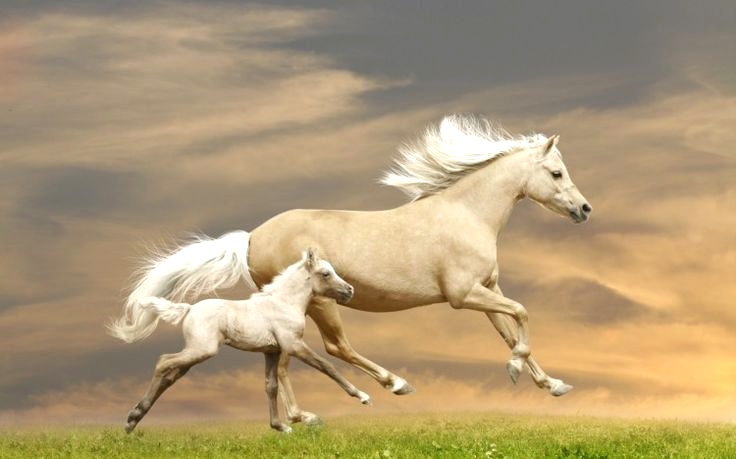Protein is one of the most important nutrients for horses and is essential for many different bodily functions. Without enough of it, horses can suffer from a variety of serious health issues. Understanding the consequences of not providing your horse with enough protein is essential for keeping them healthy and happy.
What is Protein and Why is it Important for Horses?
Protein is one of the main macronutrients that horses need in order to stay healthy and perform at their best. It is made up of amino acids, which are the building blocks of the body. Protein helps to maintain and repair tissues, produce enzymes and hormones, build muscle, and provide energy.
Without enough protein in the diet, a horse cannot perform at its best or be healthy. Protein is also necessary for proper growth and development, as well as for the production of antibodies that help protect the horse from disease.
What Can Happen if a Horse Doesn’t Get Enough Protein?
When horses are not provided with enough protein, they can suffer from a number of health issues, including:
Weight Loss
One of the most common signs of protein deficiency in horses is a noticeable weight loss. Without enough protein in the diet, horses cannot maintain healthy muscle mass, which can lead to a loss of body weight.
Poor Muscle Development
Without enough protein, horses cannot build and maintain muscle. This can lead to reduced performance and a lack of strength.
Reduced Immune System Function
Protein is essential for the production of antibodies that help protect the horse from disease. Without adequate protein, horses are more likely to become ill or suffer from infections.
Anemia
Protein is essential for the production of red blood cells, which transport oxygen around the body. Without enough protein, horses can become anemic, leading to fatigue, weakness, and poor performance.
Poor Coat and Hoof Quality
Protein is necessary for the production of keratin, which helps to keep the coat and hoofs healthy. Without enough protein, horses can suffer from a dull coat and weak hoofs.
How Much Protein Does a Horse Need?
The amount of protein that a horse needs depends on their age, size, and activity level. Generally, horses require between 8 and 15% of their daily intake to come from protein. Growing horses, pregnant mares, and working horses will need more protein than horses that are inactive or older.
It is important to ensure that your horse is getting the right amount of protein in their diet. If you are unsure, it is best to consult with an equine nutritionist for advice on the best diet for your horse.
What Are the Best Sources of Protein for Horses?
Good sources of protein for horses include hay, grass, legumes, grains, and proteins. Hay is the best source of protein for horses, as it is a natural source of protein, vitamins, and minerals. Legumes, such as alfalfa, are also good sources of protein and can be fed in moderation.
Grains, such as oats and barley, are also good sources of protein for horses. However, it is important to feed grains in moderation, as they can be high in sugar and starch, which can be harmful to the horse.
For horses that need extra protein, there are a number of supplements available. These include soybean meal, cottonseed meal, and corn gluten meal, which can be added to the horse’s feed. It is important to consult with an equine nutritionist before feeding any supplements, as they can be harmful if fed in excess.
Conclusion
Protein is essential for horses to stay healthy and perform at their best. Without enough protein in the diet, horses can suffer from a range of health issues, including weight loss, poor muscle development, reduced immune system function, anemia, and poor coat and hoof quality.
It is important to ensure that your horse is getting the right amount of protein in their diet. Good sources of protein for horses include hay, grass, legumes, grains, and proteins. For horses that need extra protein, there are a number of supplements available.
If you are unsure about the best diet for your horse, it is best to consult with an equine nutritionist for advice.



